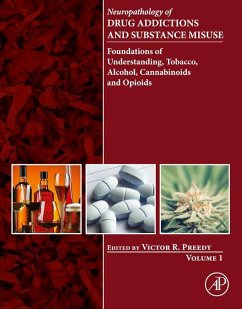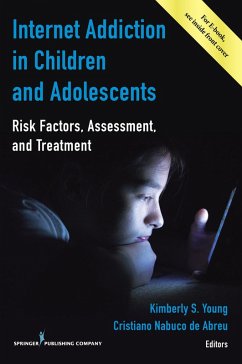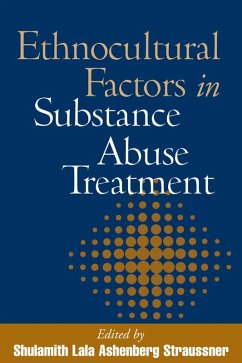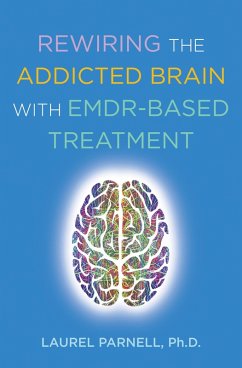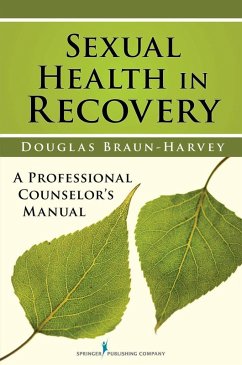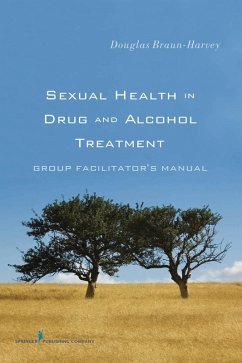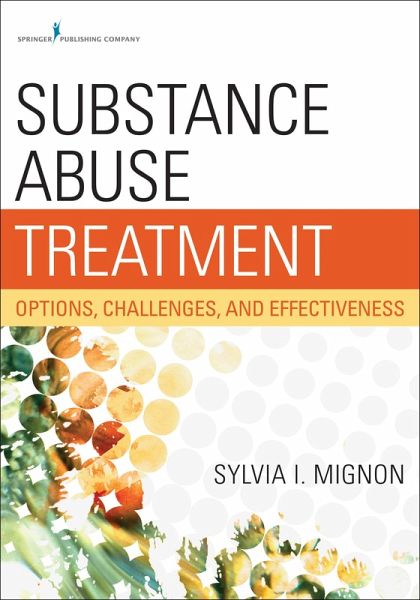
Substance Abuse Treatment (eBook, ePUB)
Options, Challenges, and Effectiveness

PAYBACK Punkte
28 °P sammeln!
The first compendium of all substance abuse treatment options with a focus on best practicesThis is the first compendium of the entire range of options available for treating substance abuse, with a focus on effectiveness. The book synthesizes treatment approaches from medicine, psychology, sociology, and social work, and investigates regimens that range from brief interventions to the most intensive and expensive types of inpatient treatment programs. It examines controversies over best practices in substance treatment and closely analyzes current research findings and their applicability for...
The first compendium of all substance abuse treatment options with a focus on best practices
This is the first compendium of the entire range of options available for treating substance abuse, with a focus on effectiveness. The book synthesizes treatment approaches from medicine, psychology, sociology, and social work, and investigates regimens that range from brief interventions to the most intensive and expensive types of inpatient treatment programs. It examines controversies over best practices in substance treatment and closely analyzes current research findings and their applicability for improving substance abuse treatment in the future. Written for both academics and clinicians, the book translates complex research findings into an easily understandable format.
Substance Abuse Treatment examines the circumstances under which a treatment is considered effective and how effectiveness is measured. It discusses treatment goals and looks at the importance of client motivation in positive treatment outcomes. A great variety of inpatient and outpatient treatment options are examined, as are self-help programs such as Alcoholics Anonymous. This segues to a discussion of the changing role of self-help programs in treatment. The text also analyzes changes in the substance abuse treatment industry that make treatment more costly and less available to those without financial resources. It gives special attention to the treatment of diverse populations, those with co-occurring disorders, and criminal justice populations. National, state, and local prevention efforts are covered as well as substance abuse prevention and future issues in treatment. The book is intended for undergraduate and graduate substance abuse courses in all relevant areas of study. In addition, it will be an important reference for substance abuse clinicians and other health professionals who treat patients with substance abuse issues.
Key Features:
This is the first compendium of the entire range of options available for treating substance abuse, with a focus on effectiveness. The book synthesizes treatment approaches from medicine, psychology, sociology, and social work, and investigates regimens that range from brief interventions to the most intensive and expensive types of inpatient treatment programs. It examines controversies over best practices in substance treatment and closely analyzes current research findings and their applicability for improving substance abuse treatment in the future. Written for both academics and clinicians, the book translates complex research findings into an easily understandable format.
Substance Abuse Treatment examines the circumstances under which a treatment is considered effective and how effectiveness is measured. It discusses treatment goals and looks at the importance of client motivation in positive treatment outcomes. A great variety of inpatient and outpatient treatment options are examined, as are self-help programs such as Alcoholics Anonymous. This segues to a discussion of the changing role of self-help programs in treatment. The text also analyzes changes in the substance abuse treatment industry that make treatment more costly and less available to those without financial resources. It gives special attention to the treatment of diverse populations, those with co-occurring disorders, and criminal justice populations. National, state, and local prevention efforts are covered as well as substance abuse prevention and future issues in treatment. The book is intended for undergraduate and graduate substance abuse courses in all relevant areas of study. In addition, it will be an important reference for substance abuse clinicians and other health professionals who treat patients with substance abuse issues.
Key Features:
- Comprises a comprehensive, up-to-date, and practical guide to the field of substance abuse treatment and its efficacy
- Synthesizes treatment approaches from medicine, psychology, sociology, and social work
- Investigates all regimens ranging from brief interventions to intensive inpatient treatment programs, from outpatient to 12-step programs
- Explores the changing role of self-help programs in treatment
- Includes chapters on substance abuse treatment with special populations including children/adolescents, women, older adults, and criminal offenders
Dieser Download kann aus rechtlichen Gründen nur mit Rechnungsadresse in A, D ausgeliefert werden.





